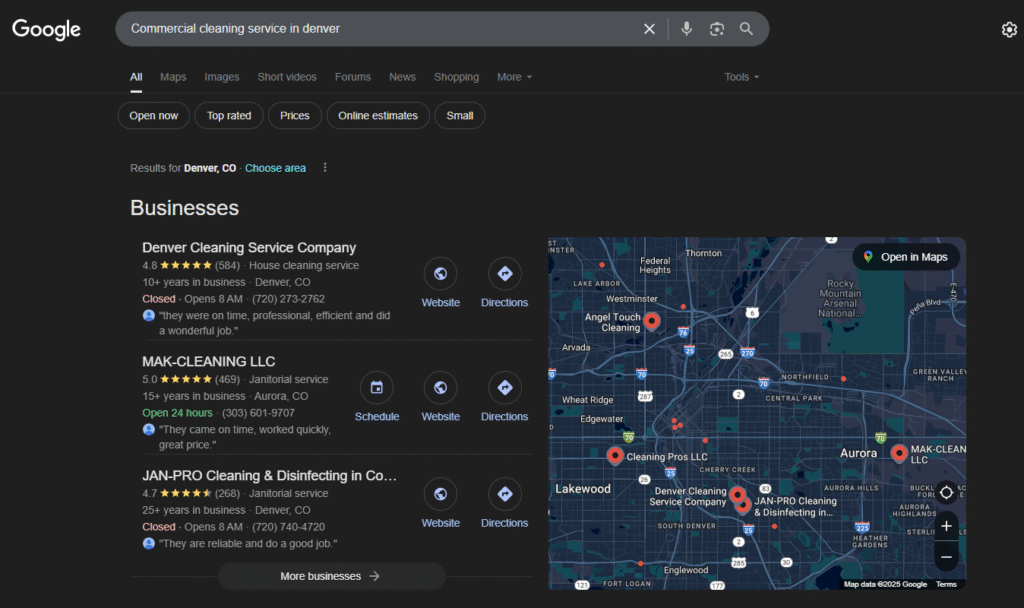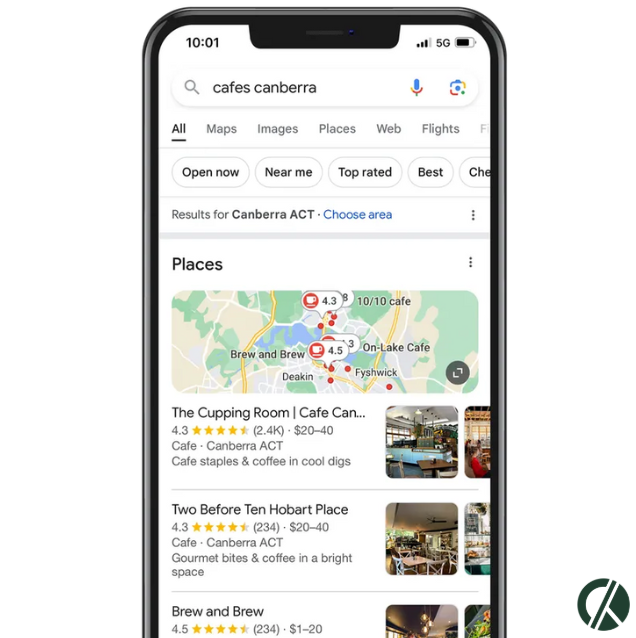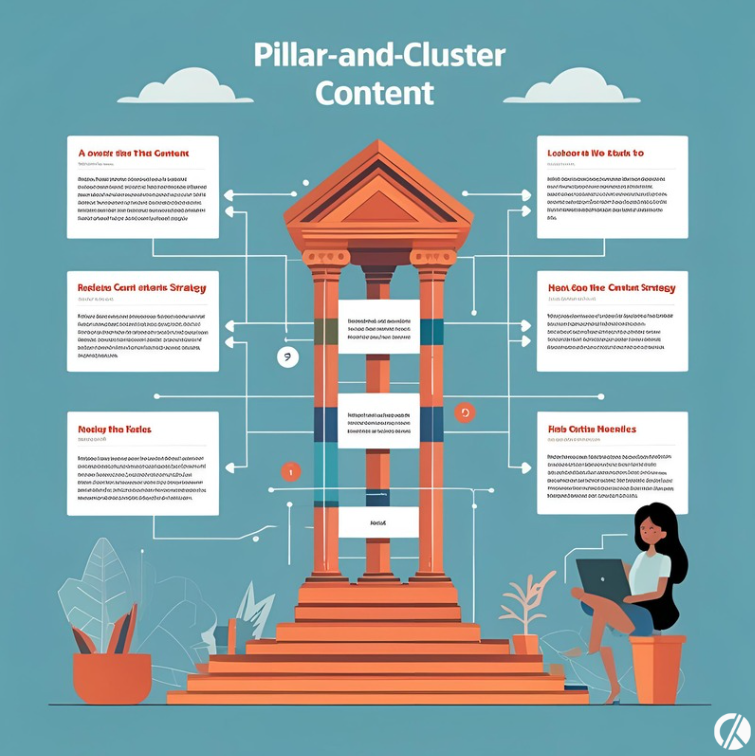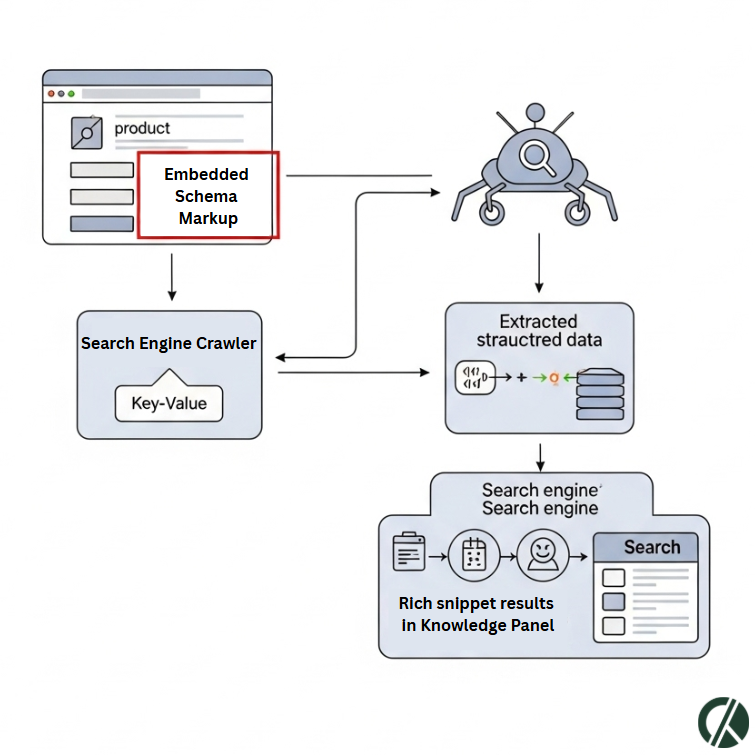The “SEO is dead” narrative; it’s the most persistent myth in digital marketing.
Every few years, a new technology emerges, and the alarm bells ring. This time, it’s generative AI, such as ChatGPT and Google’s AI Overviews (SGE).
Suddenly, everyone’s an expert predicting the demise of search engine optimization.
They’re wrong.
Completely. Utterly. Wrong.
SEO isn’t dead. It’s simply evolving. It’s shedding its skin, becoming more intelligent, more human-centric, and frankly, more powerful than ever.
This is just a pivot, an elevation.
TL;DR: The Takeaway
- SEO isn’t dead. It’s foundational to AI search.
- AI rewards superior SEO. You must rank to be cited.
- Traditional SEO delivers. Local, e-commerce, direct traffic – it’s still king.
- Content must be exceptional. E-E-A-T is your North Star.
- Technical health is non-negotiable. AI needs accessible data.
- Schema is your translator. It speaks directly to machines.
- Authority is earned. Build trust, get cited.
- KPIs are shifting. Track brand mentions in AI.
Why SEO Is Alive and Unstoppable
Let’s address the elephant in the room: The idea that AI eliminates the need for SEO is fundamentally flawed.
It misunderstands how AI works.
AI doesn’t conjure information from thin air. It processes, synthesizes, and presents data from the web.
And where does that data come from? High-quality, trusted, SEO-optimized websites.
No organic ranking? No AI citation.
It’s that simple. If your content doesn’t surface in traditional search results, AI models are unlikely to find and integrate your information into their generated answers. Your organic visibility is the gateway to AI visibility.
The true ‘secret’ to thriving in AI search? It’s simply about doing SEO at an even higher level. AI is just holding us to a higher standard.
Traditional SEO: The Undeniable Powerhouse
For vast segments of the internet, traditional SEO isn’t just relevant; it’s the only game in town.
Local SEO Power:
When a local plumber, restaurant, or service is needed, users hit Google Maps or a direct search.
- “Best pizza near me.”
- “Emergency electrician [City Name].”
These are high-intent, immediate needs. Local SEO (Google My Business optimization, local citations, geo-targeted content) directly drives foot traffic and phone calls.

AI might offer a quick summary, but the direct connection to a business remains paramount.
E-commerce SEO:
Customers aren’t asking AI to buy products. They’re searching for “best ergonomic office chair” or “review of [product model].”
Traditional SEO delivers them directly to product pages, reviews, and comparison sites. These are conversion-focused queries where direct website traffic is non-negotiable.

Deep Knowledge Acquisition:
While AI can summarize, for complex topics like “how to build a custom PC” or “understanding quantum physics,” users often need more.
They seek comprehensive guides, diagrams, step-by-step tutorials, and diverse perspectives. Websites remain the authoritative repositories for in-depth learning.
This isn’t about replacing Google. It’s about optimizing your entire digital footprint for the most intelligent search agents ever created.
The Current Search Landscape: Data vs. Dogma
Let’s ground this conversation in reality, not fear.
Google’s Unrivaled Scale:
- Google handles 16.4 billion searches daily. (Source: Exploding Topics)
ChatGPT’s Footprint:
- ChatGPT averages 1 billion queries daily. (Source: Exploding Topics)
- Crucial nuance: Many are conversational, not direct search queries.
User Preference Lingers:
- A 2025 Higher Visibility study found 79.8% of Americans still prefer traditional search engines.
AI is rising, particularly among Gen Z and Millennials. Smart marketers are leaning in now.
But the vast majority of search volume and immediate commercial intent still flows through traditional channels.
Content Mastery: Building for Intelligence (Human & Artificial)
This is where expertise truly shines. Forget keyword stuffing. Think semantic authority.
Write for Conversation.
AI models are trained on conversational text. Your content should feel like an expert speaking directly to a user.
- Headings as Questions: Instead of “Running Shoe Rankings,” use “What are the best running shoes for marathon training in 2025?”
- Direct Answers: Immediately follow with a clear, concise answer.
- Natural Flow: Use transition words, varied sentence length. Avoid robotic prose.
Elevate E-E-A-T (Experience, Expertise, Authoritativeness, Trustworthiness).
This isn’t just a guideline; it’s the core of trust for both AI and users.
- First-hand Experiences: Don’t just research; do. Share case studies, personal results. Prove you’ve been in the trenches.
- Rigorous Sourcing: Back claims with data, studies, and expert citations. Link to reputable sources.
- Show Your Credentials: Author bios with real expertise. Awards, certifications, industry recognition.
- Comprehensive Coverage: Explore subtopics, common questions, even counter-arguments. Demonstrate a holistic understanding.
Beyond Keywords: Topical Authority
AI seeks comprehensive understanding.
- Pillar Content: Create one definitive guide on a broad topic.
- Content Clusters: Build supporting articles that delve into specific aspects of that pillar.
- Internal Linking: Weave them together to show the semantic relationship.
This tells AI: “We own this topic. We’ve covered it all.” AI Overviews pull from multiple sources – often from the same domain if you have deep topical authority.

Structure: An AI’s Scannable Blueprint
AI models thrive on organized data. If your content is chaotic, AI will struggle to extract value.
Hierarchy is the main factor here.
Use H1, H2, H3 consistently. This creates a logical roadmap for AI.
Break Down Everything.
No walls of text spitting jargon. Rather, give concise answers as if you’re answering real questions.
- Short Paragraphs. (Max 3-4 lines).
- Single-Sentence Power.
- Lists. (Bullet points, numbered steps).
- Tables. (For comparative data, specs).
- Callout Quotes. Highlight key takeaways.
Leverage FAQs.
Direct Q&A blocks are gold for AI.
Q: Does your software integrate with Salesforce?
A: Yes, our platform offers robust, native Salesforce integration, allowing for seamless data sync.
Technical SEO: The Unseen Foundation of AI Visibility
Your site’s underlying code is AI’s primary language. If it can’t read your site, it can’t cite your content.
Crawlability: The First Hurdle
- Robots.txt Audit: Ensure GPTBot, Googlebot, and Bingbot are allowed. Disallowing these is like putting up a “no entry” sign for AI.
- Sitemap Submission: XML Sitemaps guide crawlers to all your important pages. Crucially, given ChatGPT’s reliance on Bing, submit your sitemap to Bing Webmaster Tools.
- Page Experience Signals: While not directly AI-specific, Core Web Vitals (LCP, FID, CLS) impact organic ranking, which in turn impacts AI visibility. A fast, stable site is a citable site.
Content Accessibility: Raw HTML Reigns
- Avoid JavaScript Dependence: If your core content loads only after complex JavaScript execution, AI might miss it. Prioritize static, renderable HTML.
- Multimedia Accessibility: Every image needs descriptive alt text. Every video needs a full transcript. This makes visual and audio content consumable by AI.
Internal Linking: The Semantic Network
- Strategically link related content.
- Use descriptive anchor text.
- This builds a robust internal network, guiding AI to your topical authority and ensuring comprehensive coverage.
Schema Markup: Way for Intelligent Machines
Schema Markup is your digital translator. It’s structured data that tells AI exactly what your content means.
Not visible to users but essential for machines.
It powers Rich Results in Google (Knowledge Panels, Carousels, FAQs, How-To snippets) and provides structured data that AI models can readily absorb.
Key Schemas for AI:
- Organization Schema: Defines your brand, contact info, social profiles. Critical for entity recognition.
- Article Schema: For blog posts and news. Signals author, publication date, headline – all trust signals.
- FAQPage Schema: Explicitly marks Q&A content.
- HowTo Schema: Breaks down step-by-step guides.
- Product Schema, Review Schema: Crucial for e-commerce, helping AI understand product attributes and sentiment.
Goal: Eliminate ambiguity. Make every piece of key information machine-readable.

Beyond Your Website:
Leverage external knowledge sources:
- Wikidata: The structured data behind Wikipedia. A powerful signal for entity recognition.
- Google My Business: Essential for local businesses.
- Industry Directories: Any vertical-specific listing sites.
- LinkedIn Company Pages, Crunchbase: Further builds your digital presence and authority.
Building Authority & Trust: The AI’s Ultimate Vetting Process
AI’s primary goal is to provide accurate and trustworthy answers. Your credibility is paramount.
E-A-T (Expertise, Authoritativeness, Trustworthiness)
- Author Bios: Don’t just list a name. Include credentials, experience, and why they’re qualified to write on the topic.
- Editorial Standards: High-quality editing, fact-checking, and clear revision dates.
- Transparent Sources: Link to every piece of data.
Off-Site Authority: The Web’s Vote of Confidence
AI doesn’t operate in a vacuum. It assesses what the rest of the internet says about you.
- Quality Backlinks: Still the bedrock. Links from respected, relevant sites signal trust.
- Brand Mentions: Unlinked mentions in industry publications, news sites, podcasts.
- Positive Reviews: On third-party platforms (Yelp, GMB, industry-specific sites).
- Inclusion in “Best Of” Lists: Actively pitch your site or product to curators of these lists.
Measuring Success in the AI Age: New KPIs Emerge
Clicks from AI Overviews aren’t always the primary metric. Often, the AI provides the answer directly.
Focus on Brand Mentions
This is your new performance indicator for AI search.
- How often is your brand, product, or specific content cited by AI?
- Tools are developing (like Surfer’s AI Tracker) to monitor these mentions across LLMs.
Direct Traffic & Conversions
For many use cases (e-commerce, local), traditional direct visits and conversions will remain the ultimate measure of SEO success.
SEO Isn’t Dead. It’s Reborn, Smarter
The “SEO is dead” narrative is lazy. It ignores the fundamental shift in how search works.
AI isn’t a threat to SEO; it’s a catalyst. It forces us to raise our game.
It demands:
- Higher quality content.
- Richer semantic understanding.
- Unimpeachable authority.
- Flawless technical execution.
This is not a time to abandon SEO. It’s a time to double down. To integrate AI understanding into every facet of your strategy.
The future of search is here. And it’s powered by world-class SEO.
Are you ready to lead the charge?
